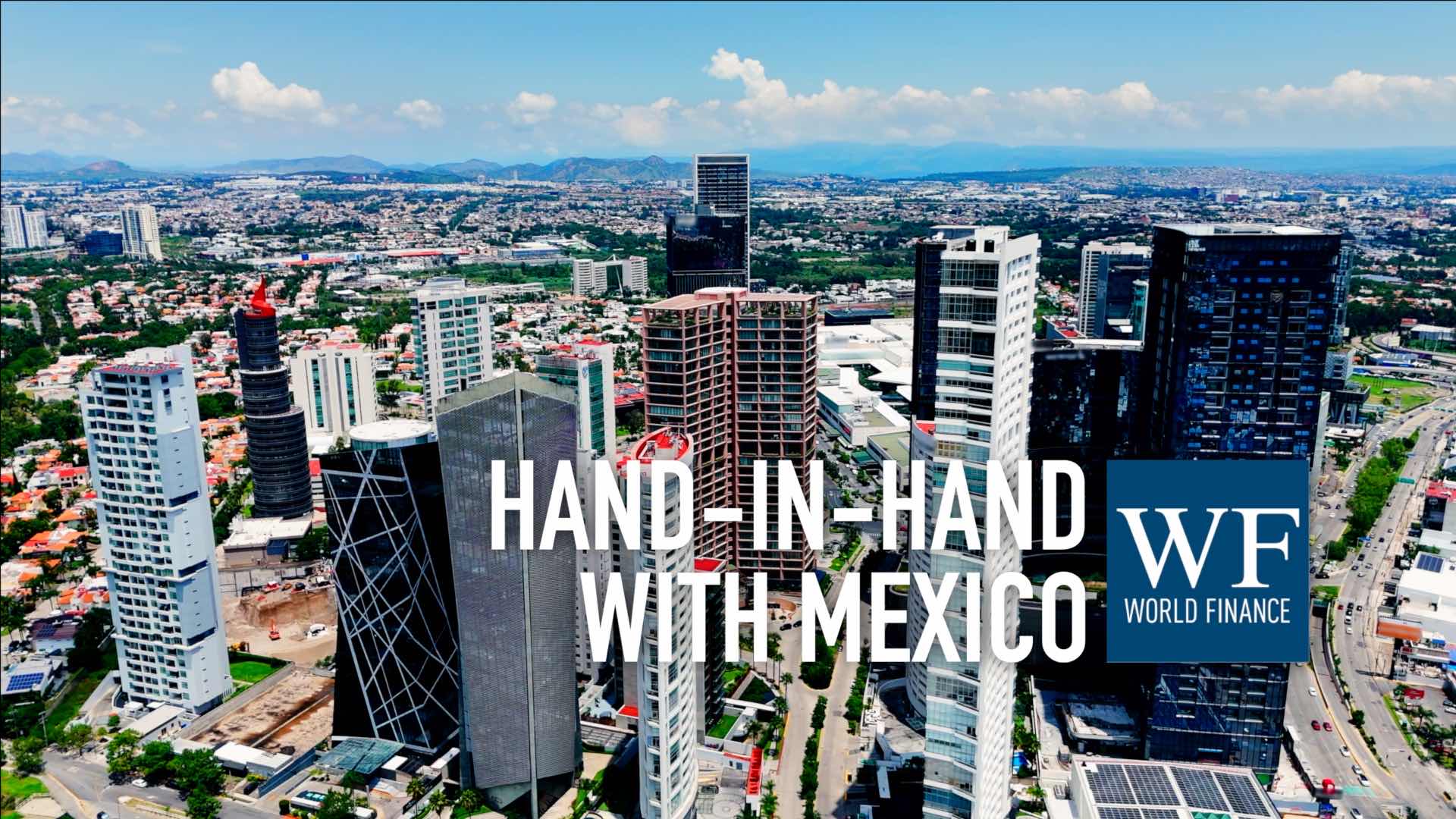Professor Daniel Tsiddon on Israel | Bank Leumi | Video
World Finance interviews Professor Daniel Tsiddon, Deputy CEO of Bank Leumi, on the benefits of being a smaller local bank
Related:
Transcript
Bank Leumi is the oldest banking corporation in Israel and has played a pivotal role in the economic development of the State of Israel. Discussing some of the challenges that they have faced is Professor Daniel Tsiddon, Deputy CEO and Head of the Capital Markets Division at Bank Leumi.
World Finance: Can you start off with the history of Bank Leumi and your current position in the Israeli banking sector
Prof. Daniel Tsiddon: Bank Leumi is the oldest bank in Israel, it’s more than 110 years old. Actually, it started before Israel in Palestine, and it was part of the vehicle for the Zionist movement to establish Israel. As of now, we’re one of the two largest banks in Israel and our share in the market, which is ranging depending on how you look at it between 25 and 30 percent of the Israeli market.
“We try to learn the needs of our customers, and to fit them”
World Finance: And how do you position yourself, what are the cornerstones of your business policy?
Prof. Daniel Tsiddon: As a universal bank, we try to fit the needs of all types of customers within the universe of Israel. That means that we have a big retail chain, we have middle market, and we have corporate to the level that corporates are sitting in Israel. Of course, we have a quite large capital market unit or division, because that has to bring everything together and shift resources across the different segments of the market. We try to learn the needs of our customers, and to fit them. And that’s not an easy job anymore because their needs and desires are changing quite quickly. We’re trying to update ourselves and to move ahead, and to understand what customer needs are, and to fit our product into that. Of course, a bank is a little bit of a fortress, it has very high walls and to make it fit to the customer, you have to work very hard. There are regulations, there are habits, it’s a big institution and when you try to move in a moving environment, it’s not an easy job.
World Finance: You say it’s a big institution but compared with international conglomerates, you’re quite a small operation, is that an advantage when it comes to keeping track of the changing needs of your customers?
Prof. Daniel Tsiddon: It’s an advantage and it’s a disadvantage. It’s a disadvantage because the costs are high, the costs of moving and changing are high. It’s an advantage because if you’re regional and universal, you learn the needs of your customer in a better way, and you can fit yourself with the customer, which you cannot make if you are a universal bank that tries to fit all types of all populations around the world. Being close to the client we can ask what is needed, we know what is needed, we know what to search around, we have better information and a better picture of the client’s risk and returns when we design the product than a big international bank.
“We use our knowledge about the customers to try to do better”
World Finance: Give me an example then of how you use that more detailed understanding of the customer to tailor your products to them.
Prof. Daniel Tsiddon: Let’s take mortgages for example. Mortgages sounds like one word, and they sound like they are always the same. Actually, they are very different. Mortgages in Israel are designed to fit the Israeli, they are designed to fit the intergenerational transfer from parents to children, which is very different. The growth of population which is different than the European one. So we use our knowledge about the customers to try to do better.
World Finance: Tell me about the Israeli banking sector, what challenges are you facing? Are they different from the rest of the world?
Prof. Daniel Tsiddon: If you compare ourselves, or if you compare the Israeli banking system to tier-two banks across the world, the challenges are very much the same. I think the challenges come from two major sources, one is the fact that following 2008, there is a big change in the regulatory system. Not only change, not only direction, but a lot of volatility in the regulatory requirements, and we have to try to fit them all- and that’s an extremely hard and costly challenge. The other one is that the customers are changing. It’s not that their needs are so much different, but the way they want to get it is extremely different, and the power shifted from the banking system to the customers- and we have to adjust, we have to learn to work in a different way. A lot of things that we considered efficient before were really trying to use the power we had on the customer, so we saved money by making you stand on line. You make the customer stand on line today, five minutes after he’s moving to another branch, he’s moving to another bank. So this change is dramatic and this challenge is the major challenge of retail and middle market, and everywhere you look in the banking sector across the world I think it’s a very similar.
World Finance: How is Bank Leumi delivering that change for your customers then, are you embracing new technologies, online banking…?
Prof. Daniel Tsiddon: It’s not only technology, I mean technology is a tool that you have to use which as I said it’s not easy, because the banks who built this fortress and the world is moved aside, and to move the fortress is not easy. So basically it’s a cultural change, you have to make people at the bank, the workers of the bank, understand to work in a different way. And to approach a customer in a different way, you have to reach a client and see what his problems are or what his desires are, try to find a solution. Of course, the banker at the front is the person that knows some of the solutions, he doesn’t know everything, so you have to find a way very quickly to climb up the ladder of authority and knowledge to derive the necessary information, or the necessary solution back to the client. This is a change in culture, a change in mode of operation, change in understanding the client, and change the IT system. It all must come together, it’s a big challenge. I’m not saying we are there, but we are heading there and we are moving, but it takes time.
World Finance: Professor Tsiddon, thank you very much
Prof. Daniel Tsiddon: Thank you

 Banorte: Growing together, growing with Mexico, growing with you
Banorte: Growing together, growing with Mexico, growing with you Ooredoo Group: Innovation, integrity and social responsibility mean ‘the sky is the limit’
Ooredoo Group: Innovation, integrity and social responsibility mean ‘the sky is the limit’
